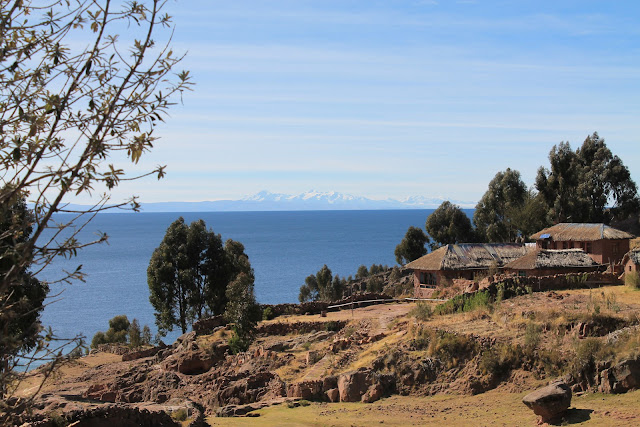czwartek, 27 czerwca 2013
Puno - Titicaca Lake
The lake is located on the border between Bolivia and Peru. The name comes from Quechua language, Titi means puma while caca means rock. Local people claim that the shape of the lake reminds them a puma hunting a rabbit. Titicaca is the highest navigable lake in the world but it's famous for its numerous islands where life is still unchanged by modern world. We had an opportunity to visit three of them.
The first island was Taquile. It is a tiny island with a population of about 2000 people. Taquile is known for its handicrafts tradition. Their textile art is considered by UNESCO as Masterpieces of the Oral and Intangible Heritage of Humanity.
The old rituals and traditions are still very important here. They mainly use traditional medicine and women give birth at home supported by the local midwife.
Alex making a traditional shampoo :) he says: "my shampoo may even compete with Head&Shoulders"
People here run their society using the Inca moral code with three main rules: do not steal, do not lie, do not be lazy. Divorce is also not permitted on the island.
On the Taquile island we visited a typical house of weavers and saw beautiful sandy beach.
Llachon - cross-cultural experience with the local community and traditional lunch - Pachamanca (meals prepared on the earth)
Pachamanca is typical Andean dish. The name is made of two Quechua roots: pacha - earth and manca - pot. Local people heat up stones over the fire and place meat on the top. Then the fire is covered by grass and earth. Food is ready after three hours. Usually they cook chicken, lamb, pork, fish , guinea pig, lima beans, potatoes and corn humitas. However pachamanca isn't simple method of cooking, it is ritual itself. Before eating the local authority thanks mother earth and lake for giving food to the community.
Uros - reed islands.
The Uros are a pre-Incan people who live on floating islands. They make them by themselves using the buoyant totora reeds that grow in the shallows of the lake. The Uros is a small tribe living in their old way. However it doesn't mean that they reject modern technology at all. On the island you can see solar panels, tv or boats with motors. People are happy and smiling all the time (because they don't have to pay taxes ;)).
On the way back our guide offered us a a glass of pisco ;)
Subskrybuj:
Komentarze do posta (Atom)



































Brak komentarzy:
Prześlij komentarz